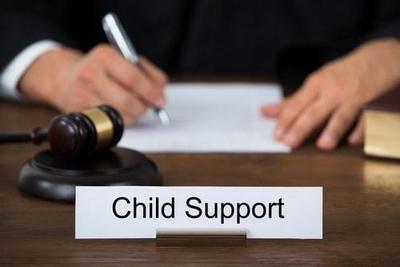Recent Blog Posts
The Court Could Reject an Unconscionable Divorce Agreement
 As you approach the divorce process, you and your soon-to-be ex-spouse may already have most of the details covered. It is not uncommon for a couple to “pre-negotiate,” if you will, regarding the various necessary considerations before the petition for divorce is even filed. For the vast majority of cases, this is very welcome, and a much lower-stress alternative to a long, drawn-out courtroom battle, the impact of which may be felt by both parties for years into the future. For some couples, however, their negotiated agreement might not meet the court’s standards and could be rejected on the grounds of being unconscionable. It is important to understand just what that means so you can be prepared to avoid such a response from the court.
As you approach the divorce process, you and your soon-to-be ex-spouse may already have most of the details covered. It is not uncommon for a couple to “pre-negotiate,” if you will, regarding the various necessary considerations before the petition for divorce is even filed. For the vast majority of cases, this is very welcome, and a much lower-stress alternative to a long, drawn-out courtroom battle, the impact of which may be felt by both parties for years into the future. For some couples, however, their negotiated agreement might not meet the court’s standards and could be rejected on the grounds of being unconscionable. It is important to understand just what that means so you can be prepared to avoid such a response from the court.
Negotiate with an Understanding of the Law
While you certainly do not need to be an attorney to reach a reasonable agreement with your spouse, it does help to have a basic grasp of what the Illinois divorce laws require. This is especially applicable to concerns for property division, and spousal maintenance. A negotiated agreement does not necessarily need to adhere to each and every provision in the related laws, but understanding what the law considers to be just and equitable is a good place to start. From there, you and your soon-to-be ex can create virtually any type of settlement you wish, as long as it is reasonably fair to both parties and your children.
Divorce Considerations for Stay-at-Home Parents
 It is estimated that about one out of five U.S. parents are stay-at-home-parents who do not work outside of the home. The majority of stay-at-home parents are mothers, but data shows that many fathers are choosing to stay home with their children as well. If you are a stay-at-home parent who is considering getting divorced, you probably have many concerns. You may worry, “How will I financially support myself without my spouse’s income? Will I still be able to stay home with my children?” Stay-at-home-parents who divorce face a different set of circumstances than parents who have had a career outside of the home, so it is important to know your options.
It is estimated that about one out of five U.S. parents are stay-at-home-parents who do not work outside of the home. The majority of stay-at-home parents are mothers, but data shows that many fathers are choosing to stay home with their children as well. If you are a stay-at-home parent who is considering getting divorced, you probably have many concerns. You may worry, “How will I financially support myself without my spouse’s income? Will I still be able to stay home with my children?” Stay-at-home-parents who divorce face a different set of circumstances than parents who have had a career outside of the home, so it is important to know your options.
Property is Divided According to Equitable Distribution in Illinois
In some states, marital property is split exactly in half during divorce. Illinois, however, uses a method of property division called equitable distribution. Marital estates in Illinois are divided equitably, or fairly, but not necessarily equally. Factors considered by Illinois courts during property division disputes include:
Start Discussing Your Parenting Plans Before You File for Divorce
 When it becomes evident that you are headed for divorce, it is important to start planning for the process. You will need to have a good understanding of your current financial situation and what constitutes your ideal post-divorce scenario. Depending upon the circumstances of your relationship with your spouse, you may be able to begin negotiating the terms of your divorce agreement. At first, of course, such discussions would need to be relatively informal, but you and your spouse can at least start talking about the future. The conversation is even more important if you have a child or children together, so that you can both better understand the role you are to play in your child’s upbringing.
When it becomes evident that you are headed for divorce, it is important to start planning for the process. You will need to have a good understanding of your current financial situation and what constitutes your ideal post-divorce scenario. Depending upon the circumstances of your relationship with your spouse, you may be able to begin negotiating the terms of your divorce agreement. At first, of course, such discussions would need to be relatively informal, but you and your spouse can at least start talking about the future. The conversation is even more important if you have a child or children together, so that you can both better understand the role you are to play in your child’s upbringing.
Determine a Primary Residence
Among your first child-related concerns should be which parent will assume responsibility for a majority of the parenting time. This is an important consideration in determining where the child will attend school. The parent who does not have the majority of the parenting time will most likely be responsible for paying child support. Just because one of you has less parenting time than the other is not considered to be a reflection on your parental rights; rather it is more of a logistical determination.
What You Should Know About Adopting Your Stepchild
 According to recent studies, nearly 40 percent of all marriages are remarriages for at least one of the partners. While, to many, numbers such as these represent a renewed hope in the institution of marriages—which may be an accurate perspective—these estimates also indicate that more and more individuals are bringing more with them into marriage. Children from previous relationships are an increasing part of marriages, and especially affect those marrying for the second or third time. Of course, there is not a “perfect” way to approach a stepchild situation, as the dynamics of each family will depend upon countless factors. However, for some stepparents, legally adopting their stepchildren may provide a level of needed security and legal parental responsibility.
According to recent studies, nearly 40 percent of all marriages are remarriages for at least one of the partners. While, to many, numbers such as these represent a renewed hope in the institution of marriages—which may be an accurate perspective—these estimates also indicate that more and more individuals are bringing more with them into marriage. Children from previous relationships are an increasing part of marriages, and especially affect those marrying for the second or third time. Of course, there is not a “perfect” way to approach a stepchild situation, as the dynamics of each family will depend upon countless factors. However, for some stepparents, legally adopting their stepchildren may provide a level of needed security and legal parental responsibility.
Related Adoptions
Foster care adoptions, along with domestic and international infant adoptions are certainly important for the well-being of children in need, but represent just part of the adoption story in the United States. The Child Welfare Information Gateway, a division of the U.S. Department of Health and Human Services, reports that adopting a stepchild is the most common form of adoption in the country today. Stepparent adoption is a type of related adoption in which a family member of the child looks to become the child’s legal parent. Compared to other forms, related adoptions are generally much simpler and no agency involvement in most cases.
Can I File for Divorce Before I Move Out?
 If you have reached the point in your marriage where you believe that your relationship is beyond saving, you have most likely given a great deal of thought to filing for divorce. In fact, a divorce might be your best option. However, you might be hesitant to file your divorce petition while you and your spouse are still sharing a home. As you probably realize, many couples will go through a “trial separation” before filing for divorce, but is a separation actually necessary? According to the law in Illinois, the answer is “not usually.”
If you have reached the point in your marriage where you believe that your relationship is beyond saving, you have most likely given a great deal of thought to filing for divorce. In fact, a divorce might be your best option. However, you might be hesitant to file your divorce petition while you and your spouse are still sharing a home. As you probably realize, many couples will go through a “trial separation” before filing for divorce, but is a separation actually necessary? According to the law in Illinois, the answer is “not usually.”
Legal Separation vs. Living Separate and Apart
It is important to understand that very few couples pursue legal separation in Illinois. A legal separation is similar, in many aspects, to a divorce, with the primary difference being that the couple is still legally married. While seeking a legal separation, issues such as spousal maintenance and parental responsibilities must be addressed, and the couple could opt to divide their property as well. (The court will make property division decisions for a legal separation.) Once an order for legal separation has been entered, it can only be vacated by a petition by the spouses or by a subsequent judgment of divorce.
Will the Divorce Court Punish My Spouse for Cheating on Me?
 It is hard to say exactly how many people have ever cheated on their spouse or significant other. Most such surveys on the issue are based on self-reporting, and those who cheat are not known to be especially honest about their behavior. Additionally, each couple may have a different definition of what constitutes being unfaithful. Of course, the statistics of cheating matter very little to an individual who learns that his or her spouse is guilty of infidelity. While many couples are able to rebuild after instances of cheating, others never fully recover and may elect to pursue a divorce.
It is hard to say exactly how many people have ever cheated on their spouse or significant other. Most such surveys on the issue are based on self-reporting, and those who cheat are not known to be especially honest about their behavior. Additionally, each couple may have a different definition of what constitutes being unfaithful. Of course, the statistics of cheating matter very little to an individual who learns that his or her spouse is guilty of infidelity. While many couples are able to rebuild after instances of cheating, others never fully recover and may elect to pursue a divorce.
Is Cheating Grounds for Divorce?
Under Illinois law, marital infidelity is not technically grounds for divorce. A divorce in Illinois will only be granted on the basis of irreconcilable differences causing an irrevocable breakdown of the marriage. Obviously, a cheating spouse can cause irreconcilable differences, but family courts in Illinois have no interest in establishing fault in a divorce. This also means, however, that the spouse who was cheated on does not need to prove that his or her spouse was unfaithful. In filing for the divorce, the offended spouse must only prove that the marriage is beyond saving.
Why Planning Is Important in Protecting Your Assets During a Divorce
 Spouses who are getting divorced can, and often do, fight about virtually anything, but issues involving money are often among the most difficult to resolve. This can be especially true if one or both spouses have substantial wealth or high net-worth. However, planning is important for divorcing couples, no matter how much money they have. If you and your spouse are considering a divorce, there are some things you can do to protect yourself and your assets.
Spouses who are getting divorced can, and often do, fight about virtually anything, but issues involving money are often among the most difficult to resolve. This can be especially true if one or both spouses have substantial wealth or high net-worth. However, planning is important for divorcing couples, no matter how much money they have. If you and your spouse are considering a divorce, there are some things you can do to protect yourself and your assets.
Gather Relevant Information
When you were getting married, you probably did not wait until a week before your wedding to start looking for a caterer or venue for the reception. Unfortunately, many people approach divorce in exactly this way. They do not do anything about the situation until their spouse actually files the petition for divorce.
It is a good idea to start preparing as soon as divorce becomes a real possibility. There is absolutely no harm in getting financial information together. Most experts recommend going back about five years and gathering as much as you can, including account statements, transaction receipts, tax returns, credit card bills, investment paperwork, and any other items that could provide details about your finances. If you are unsure about a particular document, keep it just in case. Make copies of everything and have them available for your lawyer and the court once the proceedings get started.
Five Reasons to Consider a Prenuptial Agreement Before You Get Married
 For many years, prenuptial agreements were largely considered to be necessary only for the super-rich. Today, however, more and more couples are considering using agreements like these. In fact, according to a survey conducted by the American Academy of Matrimonial Lawyers, more than half of family lawyers who responded said that they had seen an increase in requests for prenuptial agreements from the generation known as “millennials” (roughly aged 18-34).
For many years, prenuptial agreements were largely considered to be necessary only for the super-rich. Today, however, more and more couples are considering using agreements like these. In fact, according to a survey conducted by the American Academy of Matrimonial Lawyers, more than half of family lawyers who responded said that they had seen an increase in requests for prenuptial agreements from the generation known as “millennials” (roughly aged 18-34).
There are a number of reasons why millennials might see fit to use prenuptial agreements, including the fact that they are getting married for the first time at a higher average age compared to previous generations. This means that they generally have more time to accumulate assets, debts, and other obligations before getting married.
If you are soon to be married and you are considering a prenuptial agreement, there are five good reasons why such an agreement might be a good option:
What Is the Right of First Refusal in an Illinois Parenting Plan?
 If you are a parent who is considering a divorce, there is a good chance that you probably worried about how your divorce will affect your children. While you most likely realize that children are resilient and able to adapt, it is understandable that you might have fears about how your kids will handle your divorce and the related concerns.
If you are a parent who is considering a divorce, there is a good chance that you probably worried about how your divorce will affect your children. While you most likely realize that children are resilient and able to adapt, it is understandable that you might have fears about how your kids will handle your divorce and the related concerns.
One of the best things that you can do for your children is to commit to cooperating with your ex-spouse when it comes to child-related issues. Cooperative parenting—also called co-parenting—starts with a comprehensive parenting plan. A parenting plan is also required under Illinois law for divorcing parents who wish to share parental responsibilities. Your parenting plan must contain provisions for dividing decision-making authority, each parent’s days with the children, and other important matters. It must also address whether one or both parents will have the right of first refusal for extra parenting time.
What Happens When I Cannot Afford My Child Support Payments?
 Many parents do not realize the amount of money it actually takes to raise a child. When child support payments become a part of your monthly expenses, you may find yourself in a financial predicament. Child support is designed to help a child with unmarried or divorced unmarried parents to enjoy the same quality of life that he or she would have with married parents. In Illinois, child support amounts are determined by analyzing each parent’s income, employment, health, and other factors. If you cannot afford your court-ordered child support, read on to learn about what your next steps should be.
Many parents do not realize the amount of money it actually takes to raise a child. When child support payments become a part of your monthly expenses, you may find yourself in a financial predicament. Child support is designed to help a child with unmarried or divorced unmarried parents to enjoy the same quality of life that he or she would have with married parents. In Illinois, child support amounts are determined by analyzing each parent’s income, employment, health, and other factors. If you cannot afford your court-ordered child support, read on to learn about what your next steps should be.
Never Stop Child Support Payments Without Notification
Illinois takes child support nonpayment very seriously. If you cannot afford your child support, never simply stop payments. Missing payments or paying only partial amounts can result in significant negative consequences. Parents who fail to pay their support payments in Illinois can have their wages or bank accounts garnished, tax returns intercepted, a lien placed against their property, and their driver’s license suspended or revoked. In severe cases of child support nonpayment, parents can face passport denial and even criminal prosecution. Parents who own $5000 or more in past-due support can also have their name and photograph posted on the “Illinois Deadbeat Parent” website.











 630-352-2240
630-352-2240



